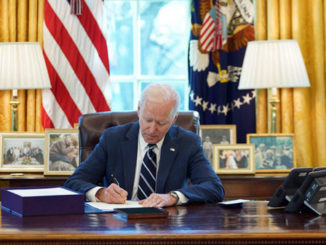
Lockdowns and other restrictions are starting to stem the spread of Covid-19 in some, but not all, European countries, authorities have said, and the continent’s hospitals remain under heavy pressure that is unlikely to ease for some time yet.
In Germany, which began a “lockdown light” on 2 November, Lothar Wieler, the head of the country’s disease control agency, RKI, said on Thursday, Nov 12, the infections curve was flattening, showing “we are not helpless against this virus”.
Measures such as social distancing and mask wearing were helping, Wieler said, after the country reported 21,866 new cases over the last 24 hours, fewer than the record 23,399 set on Saturday, with the reproduction or R number falling below 1 to 0.89.
France, which is a fortnight into a stricter lockdown, was also starting to regain control, the prime minister, Jean Castex, said, despite 60% of people surveyed in a poll published on Thursday, Nov 12, admitting they had broken the rules at least once.
Castex said infection numbers were down by about 16% this week compared with their level at the end of October, and that France’s R number had fallen below 1 to between 0.8 and 0.9. “Our lockdown strategy … seems to be producing the expected results, but we must remain cautious,” he said.
The prime minister said it would be “irresponsible to lift or relax the current measures in place … at the risk of having to return to lockdown in December”. France’s ICU wards were operating at 90% of their capacity before the crisis, he said. The peak of the pandemic in French hospitals should arrive early next week, hopefully leading to a gradual relaxation of lockdown measures from the beginning of December, allowing families at least to spend Christmas and new year together – but without big parties, he said.
The Netherlands, which last week was considering closing its high schools and imposing a curfew, has rowed back after seeing similar promising signs. The health minister, Hugo de Jonge, said on Wednesday the peak of the pandemic had passed, even if the number of people in hospital had risen slightly.
Ireland, which closed all bars, restaurants and non-essential shops and banned non-essential travel more than 5km from home, has cut its daily infections to 240 from more than 1,200 last month. “I think everyone is confident now that we will ease restrictions in December,” the deputy prime minister, Leo Varadkar, said.
Even in Spain, which has been among the hardest hit in Europe’s second wave, the proportion of hospital beds occupied by coronavirus patients in Madrid – where bars and restaurants remain open until midnight – has fallen from 42% last month to 36% this week, with the capital’s positive test rate declining from 20% to 8%.
While the Czech Republic, which returned to lockdown on 22 October, planned to reopen some primary classes next week after cutting its daily infections to 6,000 from more than 10,000 two weeks ago, Poland was expecting strict measures after recording 40% more excess deaths in October than the average of the four previous years.
And Italy on Thursday recorded 636 Covid deaths over the past 24 hours, the highest figure since April, with 37,978 new infections – 5,000 more than on Wednesday, Nov 11.





Be the first to comment